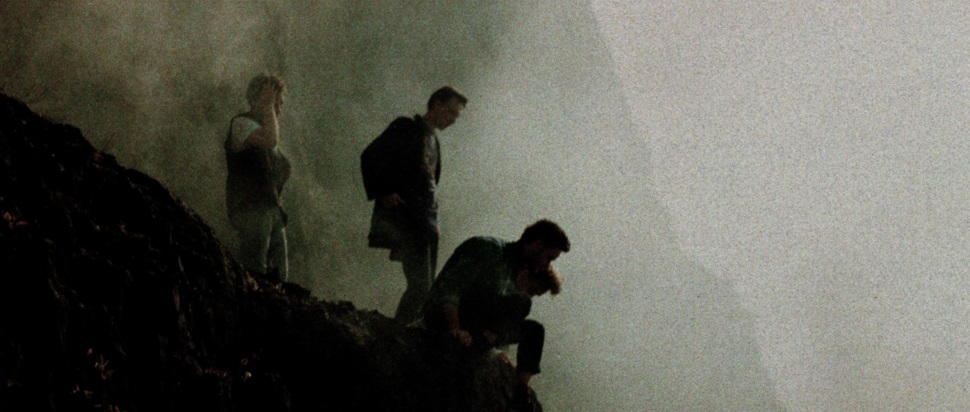WU LYF 4EVA: The cult of WU LYF
After the surprise return of Manchester outfit WU LYF, we explore their cult-like status with hope for the future
There are certain live TV performances that stay ingrained in your memory for eternity. Morrissey swinging that bouquet of flowers around and around and around on Top of the Pops; the iconic Madonna/Britney/Christina three-way kiss at the MTV VMAs; Glasvegas and Florence Welch’s absolutely baffling cover of Suspicious Minds at the NME Awards.
Manchester four-piece WU LYF’s one, and only, live TV performance on the Late Show with David Letterman in 2012 could easily fall into this same category. In just four minutes, everything you needed to know about WU LYF became clear; all the beauty and the chaos. Performing Heavy Pop, the lead single from their debut album Go Tell Fire to the Mountain, the band exuded energy while giving very few fucks.
The drums come crashing in, with barely a pause after Letterman introduces them, and crashing out – a close-up in the exhilarating closing crescendo shows the cymbals nearly flying off their hinges under the intensity of drummer Joe Manning’s playing. Frontman Ellery Roberts looks distantly towards the ceiling throughout – his almost indecipherable, roughly-delivered vocals a staple of the band’s sound – before coming alive at the end to yell “What’s up motherfuckers?” And, just like that, it’s over; the band walk off stage before Letterman can even properly close.
The performance is a fitting metaphor for the band’s short-lived but highly impactful career. Appearing like a mirage in the early 2010s, WU LYF became one of the most whispered-about then talked-about bands in music, embracing and actively encouraging their cult-like status. Their name WU LYF stood for World Unite Lucifer Youth Foundation and their symbol 'the wucifix' resembled a religious cross. Lucifer Youth Foundation was the name of their membership scheme through which fan support was compensated with merch and singles. The money raised by the LYF funded the recording and release of Go Tell Fire to the Mountain, self-released on the band’s own label LYF Recordings in June 2011.
The album itself was brimming with religious undertones and is still considered by many, to this day, as one of the modern British greats. But when WU LYF ended, just over a year later, it was announced by Roberts in the description of a YouTube video accompanying the band’s last single, T R I U M P H – to the surprise of both the fans and his bandmates – in which he stated “WU LYF isn't that important.” It might not have felt like it to Roberts on the inside, but on the outside what WU LYF achieved felt massive.
The band’s rapid success and culty energy also felt very of its time. In the early 2010s, blog culture was booming, and the energy garnered amongst fans towards their favourite bands online felt reminiscent to that of fanzine culture during the height of the punk movement in the 70s. But unlike fanzines, the globalised network the internet provided allowed online music fandoms and communities to form and spread like wildfire. And music bloggers were all in competition to stake their claim to the next big music discovery before the labels and major publications could get to them. So when WU LYF appeared, all underground and uninterested, the music bloggers went feral.
Meanwhile, over in the US Odd Future were creating a similar movement – shunning usual music pathways with a heightened focus on community achieved by maintaining close relationships with their online fanbase and a distinct visual identity largely spread through merchandise. Both bands also firmly embraced and represented youth culture at the time. Their fanbases were largely made up by disillusioned youth (undeniably, lots of skaters), searching for community in a world that felt like it had none left.
So when WU LYF announced their surprise return in March with a poster featuring the infamous 'wucifix' alongside the words 'A New Life is Coming' and the announcement of a string of reunion shows, that same community of disillusioned youth – now disillusioned adults – tuned back in. It was followed a few weeks later by the removal of their debut album from streaming platforms and the release of a new single with a chorus that treads the line of hopeless and hopeful declaring: 'I pray for something / You do nothing / This is spirituality to me / Something comes from nothing'.
In typical WU LYF fashion, all announcements have remained sparse on information. Mystery is what WU LYF was born on, and so it still remains. But the timing feels perfect. When it feels like all hope is lost, we often turn to culture and community to save us – or at least to offer us the promise of something; so maybe, just maybe, WU LYF’s resurrection can be our saviour. Even if only for a brief, fleeting, beautiful moment.
A New Life is Coming was released on 3 Apr
